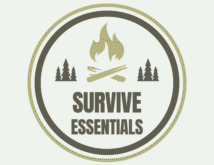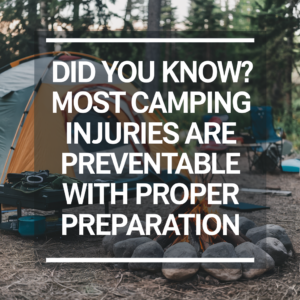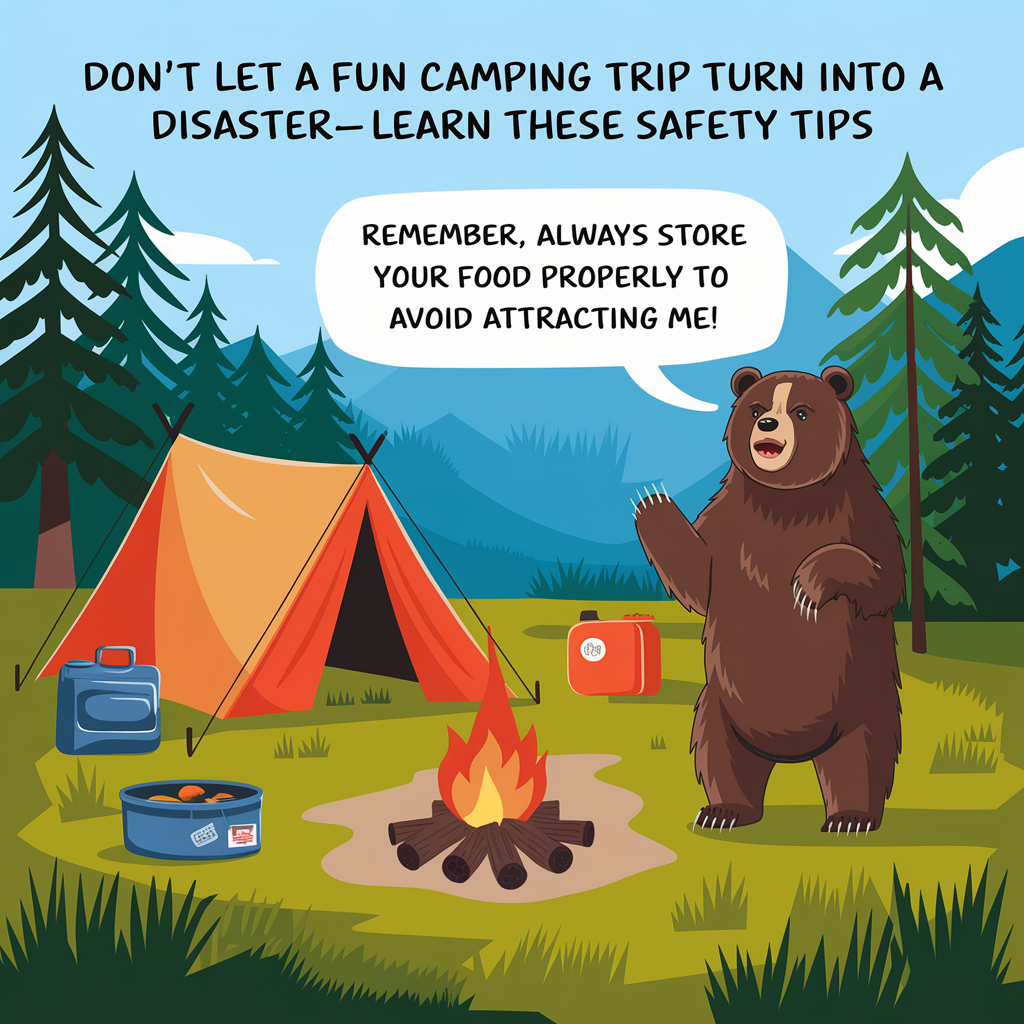
Camping is a wonderful opportunity to connect with nature and enjoy the great outdoors. However, it’s essential to prioritize safety during your camping adventure. In this blog post, we’ll provide valuable camping safety tips to help you have a secure and worry-free experience. From preparing for emergencies to practicing campfire safety and wildlife awareness, these guidelines will help ensure that your camping trip is both enjoyable and safe.
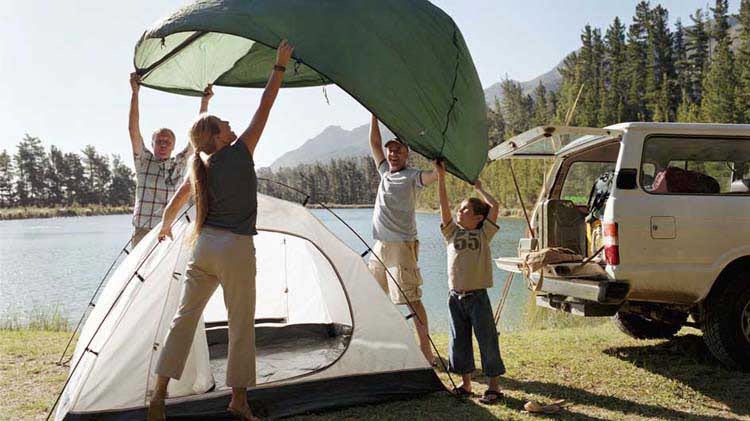
Plan and Prepare: Research Your Destination
Before heading out on your camping trip, research your destination thoroughly. Familiarize yourself with the area’s weather conditions, terrain, and any potential hazards or wildlife concerns. Check for any campground or trail closures and stay updated on weather forecasts. By being well-informed, you can better prepare and anticipate potential challenges.
Pack a Well-Stocked First Aid Kit
A comprehensive first aid kit is an essential item for any camping trip. Ensure that your kit includes bandages, adhesive tape, antiseptic wipes, pain relievers, insect repellent, tweezers, and any necessary personal medications. Familiarize yourself with basic first aid procedures to address common camping injuries. Having a well-stocked first aid kit will provide you with the necessary supplies to handle minor accidents and injuries.
Practice Campfire Safety
Campfires can be a cozy and enjoyable part of the camping experience, but they also present potential risks. Follow campground rules and regulations regarding campfire usage. Choose a safe location for your fire, away from overhanging branches or flammable materials. Keep a bucket of water or a fire extinguisher nearby for emergencies. Always fully extinguish the fire before leaving the campsite or going to bed. Practicing proper campfire safety ensures that you can enjoy the warmth and ambiance of a fire responsibly.
Wildlife Awareness: Respect and Observe from a Distance
Encountering wildlife is a possibility when camping, and it’s crucial to respect and observe animals from a safe distance. Keep your food stored securely to prevent attracting wildlife to your campsite. Dispose of waste properly and follow guidelines to minimize your impact on their natural habitat. Avoid approaching or feeding wildlife, as this can disrupt their behavior and potentially pose risks to both you and the animals.
Stay Hydrated and Practice Food Safety
Staying hydrated is essential during outdoor activities, especially when camping in warmer climates. Bring an adequate supply of clean drinking water and encourage everyone in your group to drink regularly. Practice proper food safety by storing perishable items in coolers with ice or refrigeration packs. Avoid leaving food out in the open, as this can attract insects and wildlife.
Be Weather-Ready: Prepare for Changing Conditions
Weather conditions can change rapidly in outdoor environments, so it’s important to be prepared. Pack appropriate clothing for various weather conditions, including rain gear, extra layers, and sun protection. Stay updated on weather forecasts and be ready to adapt your plans accordingly. Seek shelter during severe weather and be aware of lightning safety measures. By being weather-ready, you can ensure your comfort and safety throughout your camping trip.
Leave No Trace: Respect and Preserve the Environment
Camping is an opportunity to appreciate and connect with nature, so it’s essential to practice Leave No Trace principles. Pack out all trash and dispose of waste properly. Minimize your impact by staying on designated trails and avoiding damage to plants and wildlife. Respect the natural environment and leave it as you found it, ensuring its preservation for future generations.
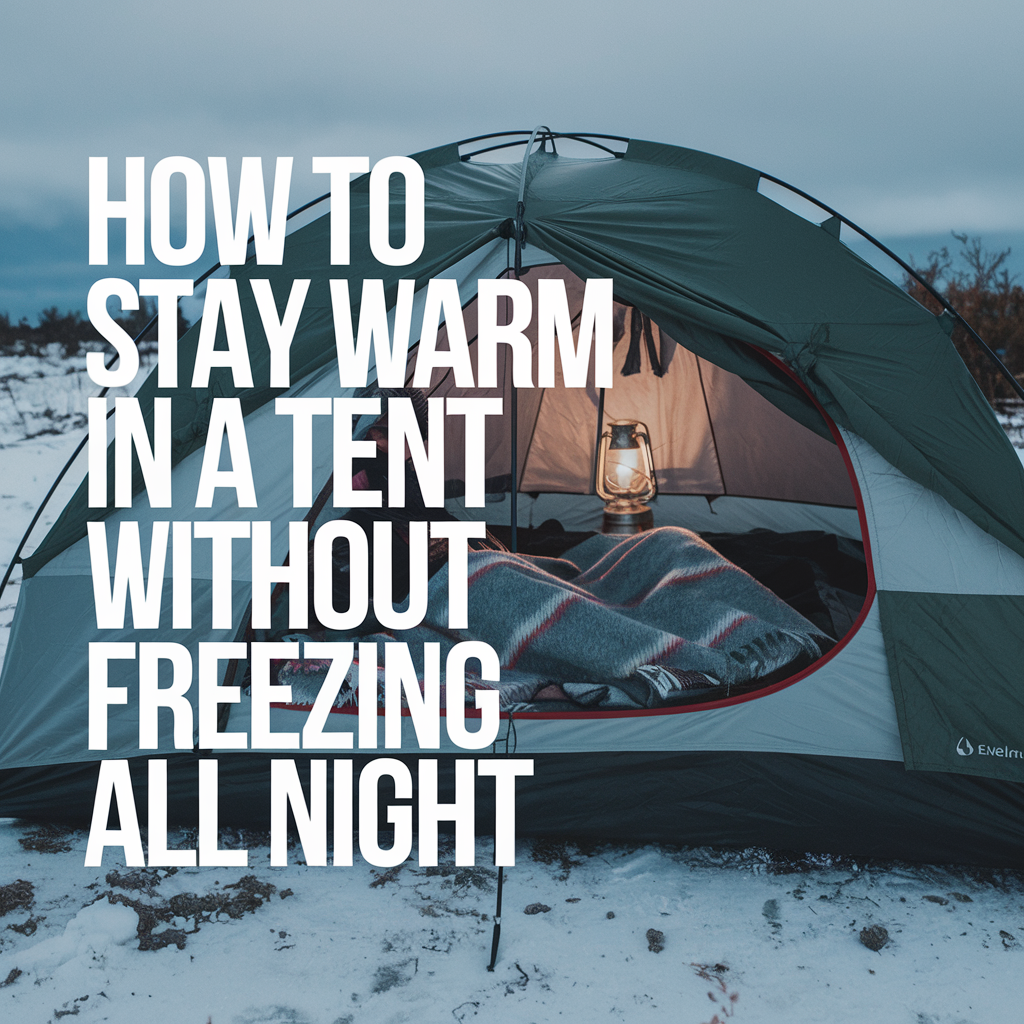
Prioritizing safety during your camping trip is crucial for a secure and enjoyable experience. By planning and preparing, packing a well-stocked first aid kit, practicing campfire safety, being wildlife-aware, staying hydrated, being weather-ready, and practicing Leave No Trace principles, you can have peace of mind while immersing yourself in the beauty of the great outdoors. Embrace the adventure, stay safe, and enjoy all that camping has to offer
As an Amazon Associate we earn from qualifying purchases through some links in our articles.
